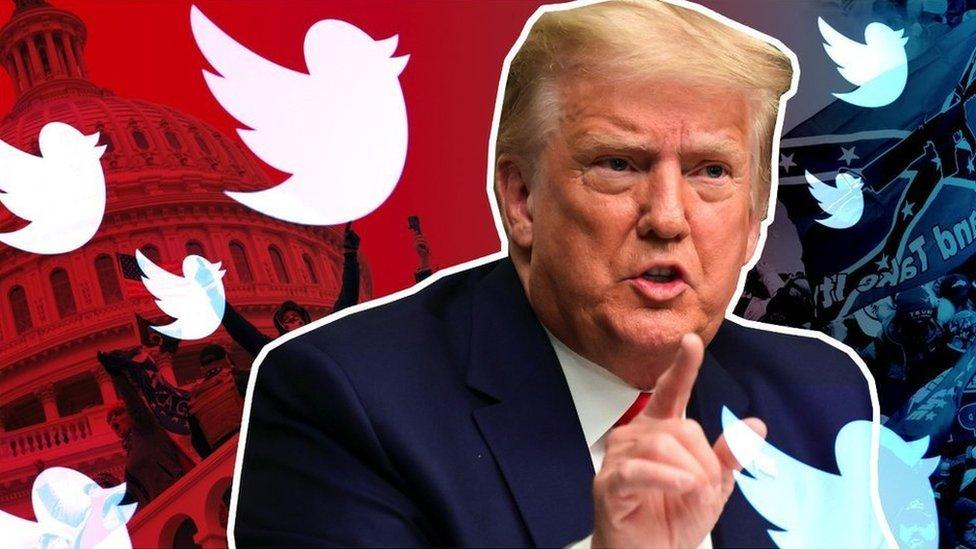Twitter ban: People across Nigeria lose access to Twitter
- Published
- comments
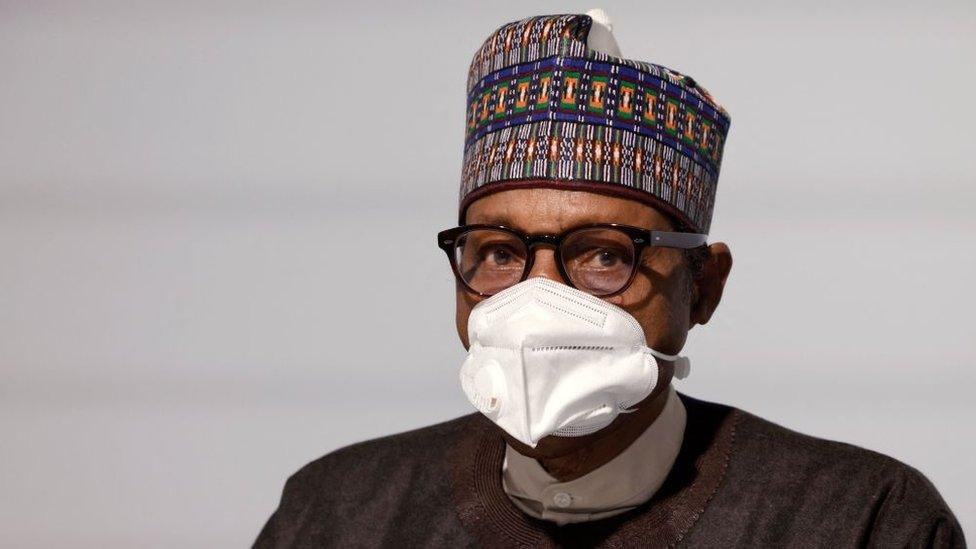
President Muhammadu Buhari, the current president of Nigeria
People living in Nigeria have been told by the country's government that they are not allowed to use the social media site, Twitter, and could face punishments if they do.
The ban comes months after big protests in the country over the use of force by the police.
But what does that mean for people living there and why did this happen?
The President vs. Twitter
Last week, Twitter deleted a tweet posted by the president of Nigeria, Muhammadu Buhari.
In the tweet the president spoke about issues in the south-east of Nigeria and said that anyone "misbehaving today" will be "treated in language they understand.
Many people, including Twitter, read that as a threat of violence. Twitter then deleted the tweet for violating its rules.
Shortly after, the government announced that it would be banning Twitter and the social media site has been banned since 4 June. It has also said that anyone found using Twitter will be prosecuted.
The government claims that the removal of the president's tweet was not the only reason behind the ban.
It says that there have been a many problems with Twitter in Nigeria "misinformation and fake news spread through it have had real world violent consequences".
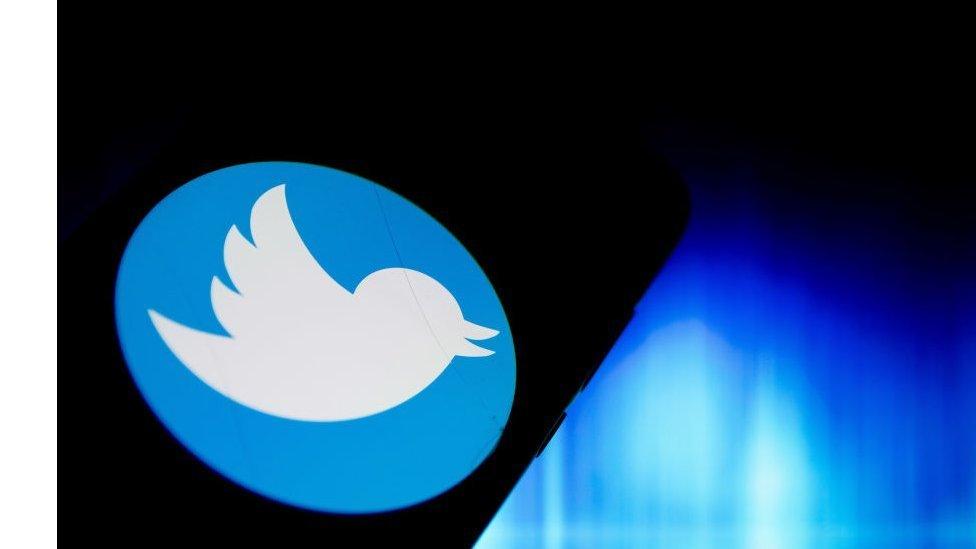
Twitter is one of the most popular social media apps in the world
Are people still tweeting?
Although the government has said that people will be prosecuted for using the app, many people in Nigeria are still using it - including high profile people such as religious leaders and politicians.
The government has made it very clear that the site is banned... but the ban is not actually written into law yet which could make it hard for people to get in trouble with the law.
Also, the courts in Nigeria - the places responsible for justice in a given country - have been on a two month strike which has made it hard for people to be prosecuted as there was no one there to prosecute them.
Many people in Nigeria have been using VPNs as a way to get around the ban.
A VPN, also known as a Virtual Private Network, is what some people use to hide their online identity.
People in Nigeria have been able to use a VPN to trick mobile networks into thinking they are using Twitter from locations outside of the country.
However, some VPNs can cost a lot of money meaning not everybody will use them.
The government in Nigeria has not spoken of any arrests but there are unconfirmed reports of people being stopped with their phones being searched for the Twitter app.
'This is not surprising'
Nigeria is home to the largest city in Africa, Lagos. It is also known for a massive entertainment industry from film to music. There are many Black people in the UK who have family in Nigeria.
However to a lot of young people within the country, the recent ban is not surprising at all and is just part of a wider problem between the government and the people who live there.
BBC reporter Yemisi Adegoke who is out in Lagos told the BBC that "Twitter is a really important app in Nigeria, professionally and personally," and that many people are not shocked by the ban as something like this has been on the agenda for some time.
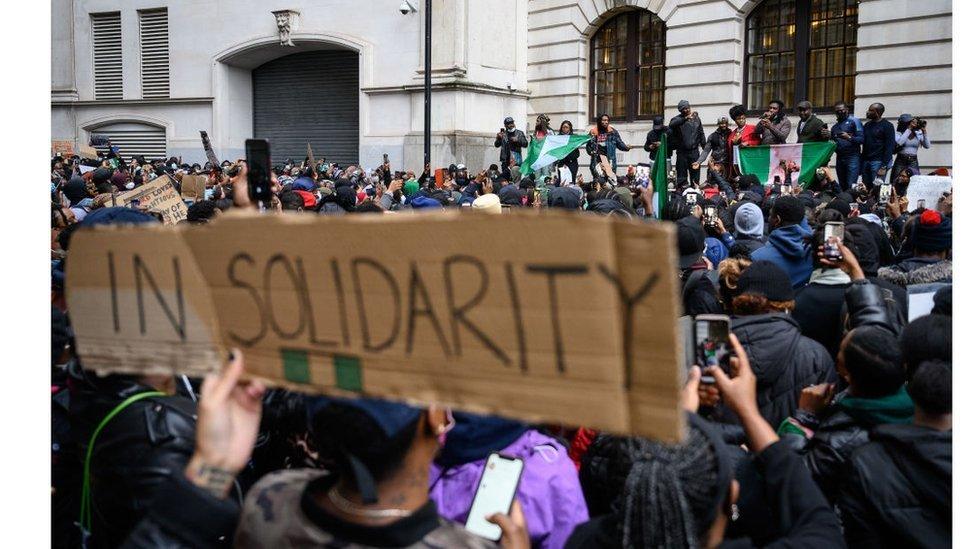
A protest in London against Special Anti-Robbery Squad
Last year there were massive protests in Nigeria and across the world to end one of Nigeria's most controversial police units known as the Special Anti-Robbery Squad, or SARS.
The unit had been accused of abusing its power and mistreating Nigerian citizens. A lot of the protests and the criticism had been organised and shared on apps like Twitter.
The app even designed a special emoji for the hashtag, #EndSARS, with the big boss (Jack Dorsey) sharing his support to the ending of the unit.
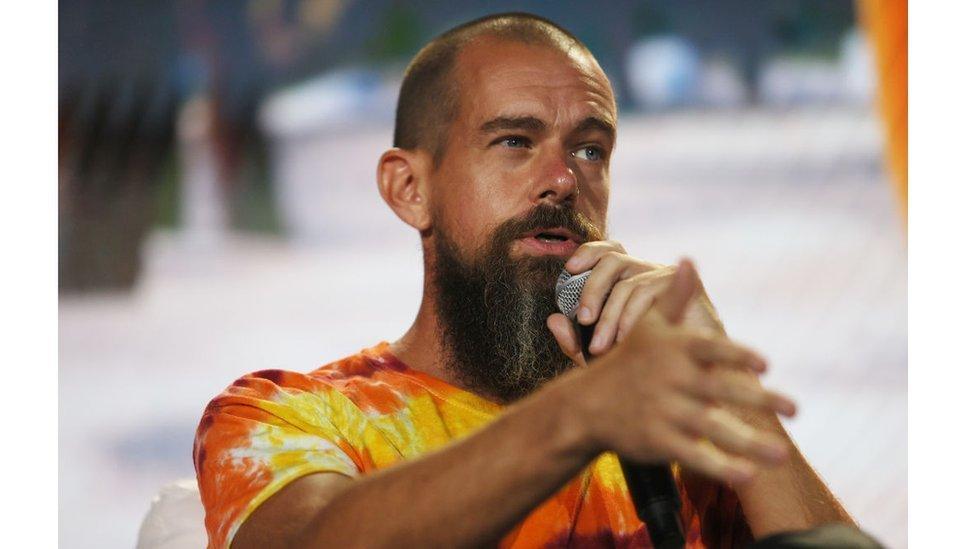
Jack Dorsey is the CEO of Twitter
Many people think that this annoyed the government and became just another reason why it was against Twitter.
"There is a definite tension between the older generation and the younger one" says Yemisi.
Nigeria only came out of military rule in 1999 meaning that there were a lot of people born after that who grew up in a Nigeria that was very different to the country their parents and older family members knew.
This same generation use Twitter as a way to see how different countries worked, find their news and are exposed to different ideas. Something that they struggle to do now with the new ban.
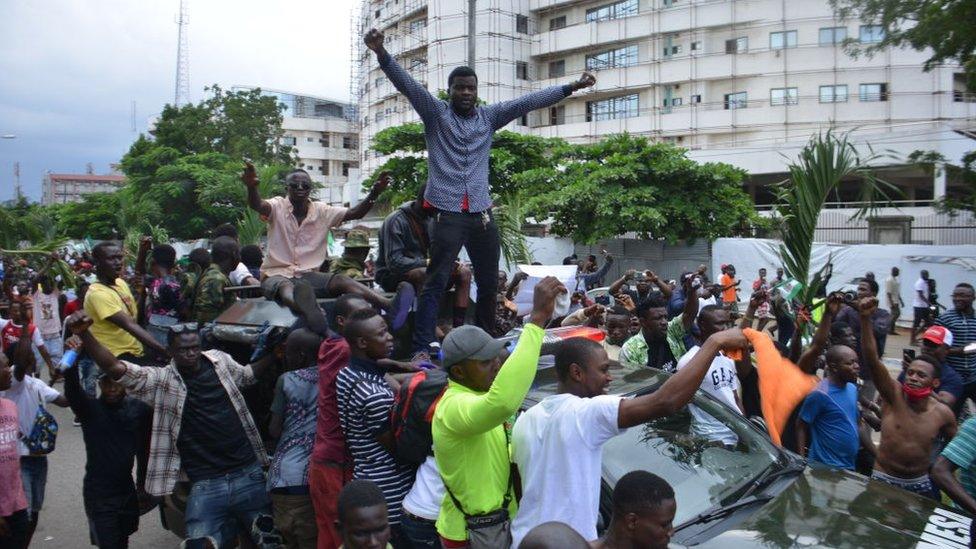
The EndSARS protests started in Nigeria but happened all around the world
What are people saying about it?
The UK, Republic of Ireland, US, Canada and the European Union released a joint statement saying it was disappointed by the government's decision and that banning Twitter was against people's human right of freedom of expression.
Across social media the campaign to stop internet shutdowns, #KeepItOn, has been trending in support of people in Nigeria.
However, not everyone is against the ban. For some people, it raised the question of whether social media sites should delete tweets from public leaders.
This is an idea that is shared by the 45th president of the United States, Donald Trump, who showed his support towards the ban as someone who has been banned by Twitter outright.
It is unclear what will happen with the ban but Twitter and the Nigerian government are in talks to try and end the dispute.
- Published23 March 2021
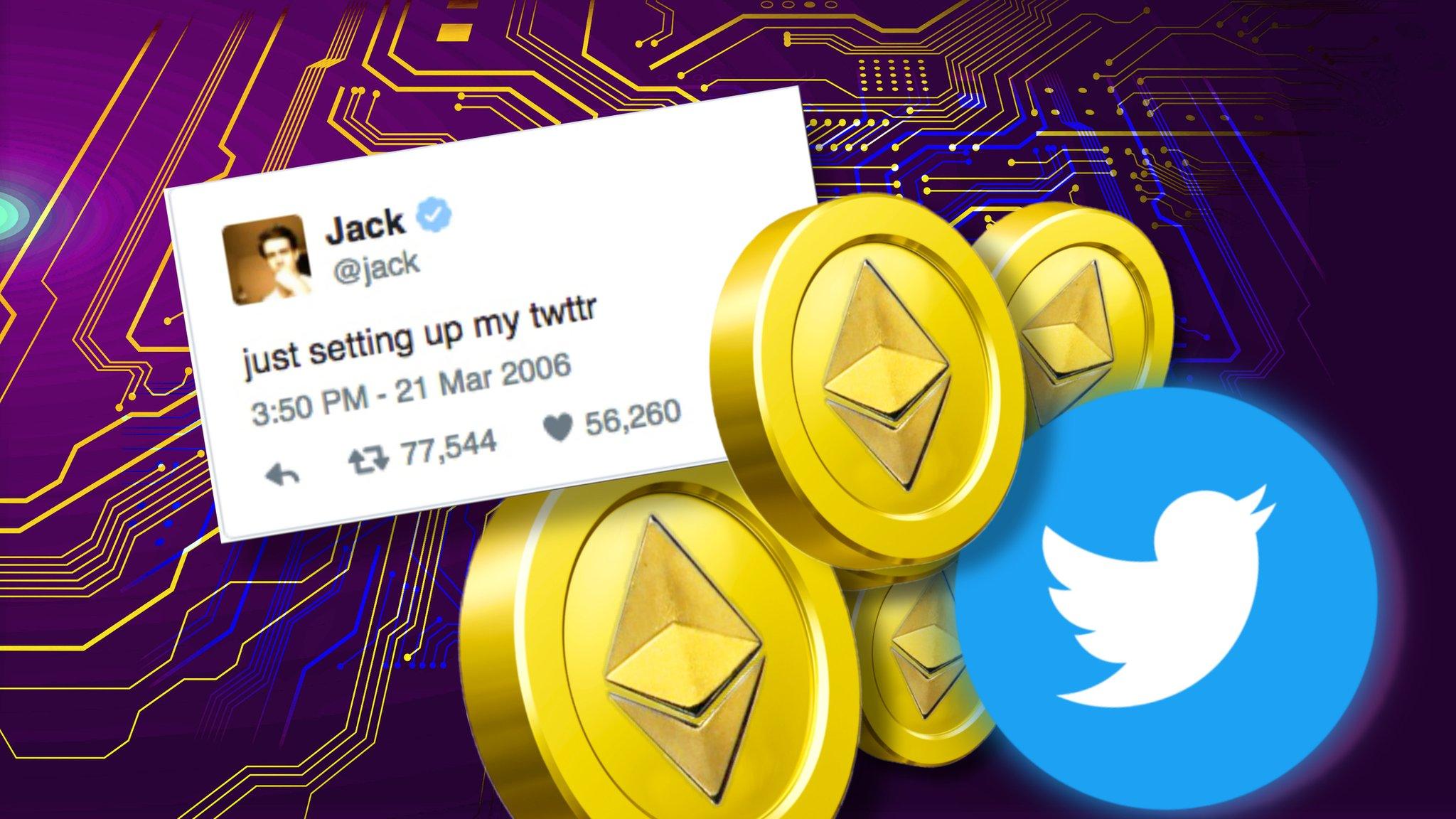
- Published17 November 2020
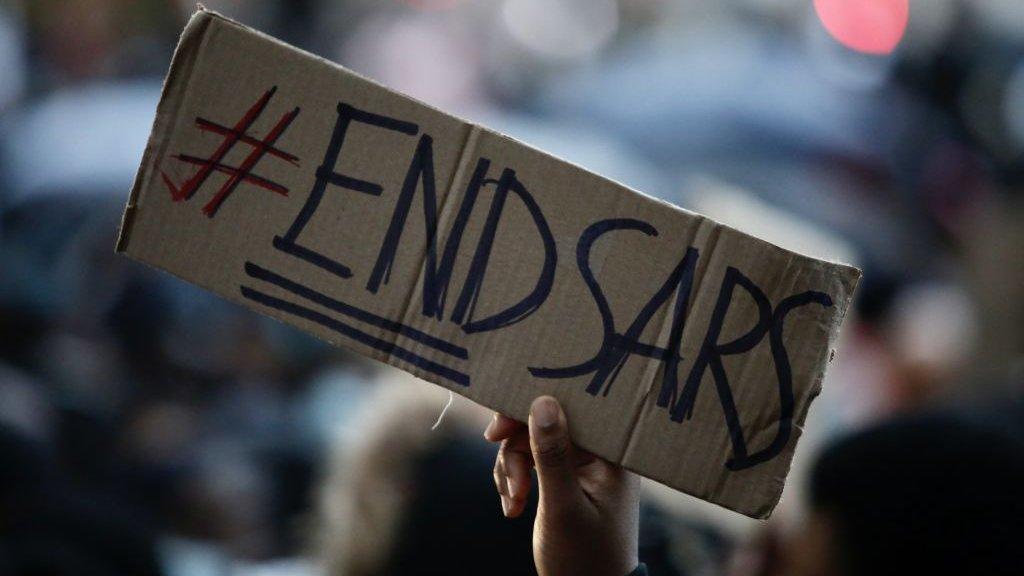
- Published9 January 2021
